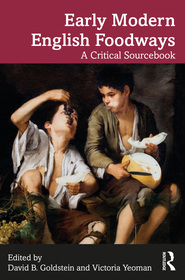
Universities, Cities and Regions
Loci for Knowledge and Innovation Creation
Sorozatcím: Routledge Studies in Global Competition; 62;
-
20% KEDVEZMÉNY?
- A kedvezmény csak az 'Értesítés a kedvenc témákról' hírlevelünk címzettjeinek rendeléseire érvényes.
- Kiadói listaár GBP 180.00
-
85 995 Ft (81 900 Ft + 5% áfa)
Az ár azért becsült, mert a rendelés pillanatában nem lehet pontosan tudni, hogy a beérkezéskor milyen lesz a forint árfolyama az adott termék eredeti devizájához képest. Ha a forint romlana, kissé többet, ha javulna, kissé kevesebbet kell majd fizetnie.
- Kedvezmény(ek) 20% (cc. 17 199 Ft off)
- Kedvezményes ár 68 796 Ft (65 520 Ft + 5% áfa)
Iratkozzon fel most és részesüljön kedvezőbb árainkból!
Feliratkozom
85 995 Ft

Beszerezhetőség
Becsült beszerzési idő: A Prosperónál jelenleg nincsen raktáron, de a kiadónál igen. Beszerzés kb. 3-5 hét..
A Prosperónál jelenleg nincsen raktáron.
Why don't you give exact delivery time?
A beszerzés időigényét az eddigi tapasztalatokra alapozva adjuk meg. Azért becsült, mert a terméket külföldről hozzuk be, így a kiadó kiszolgálásának pillanatnyi gyorsaságától is függ. A megadottnál gyorsabb és lassabb szállítás is elképzelhető, de mindent megteszünk, hogy Ön a lehető leghamarabb jusson hozzá a termékhez.
A termék adatai:
- Kiadás sorszáma 1
- Kiadó Routledge
- Megjelenés dátuma 2012. november 6.
- ISBN 9780415631082
- Kötéstípus Keménykötés
- Terjedelem400 oldal
- Méret 234x156 mm
- Súly 900 g
- Nyelv angol
- Illusztrációk 34 Illustrations, black & white; 34 Line drawings, black & white; 24 Tables, black & white 0
Kategóriák
Rövid leírás:
Increasingly, and since the expansion of the European Union in 2004 in particular, themes of academic entrepreneurship, university-business links, knowledge and innovation have become important on a Europe-wide scale. This book draws together key thinkers from across the continent to analyze the importance of higher educational institutions in fostering development.
TöbbHosszú leírás:
Regions and cities are the natural loci where knowledge is created, and where it can be easily turned into a commercial product. Regions are territories where, under certain socio-economic conditions, a strong sense of belonging and mutual trust develops the ability to transform information and inventions into innovation and productivity increases, through cooperative or market interaction. Especially in contexts characterised by a plurality of agents — such as cities or industrial districts — knowledge is the result of cooperative learning processes, nourished by spatial proximity, network relations, interaction, creativity and recombination capability.
This book explains the logic behind these interactions and cooperative attitudes in regions and cities. One of the most significant channels comes from the presence of a university and its collaboration with firms and scientific research centres. These mutual relations between academic institutions and enterprises are of key importance.
The significance of universities in driving economic well being and regional development has been well documented for some time now. Much of the research, however, has centred upon countries in Western Europe and the United States. Increasingly, and since the expansion of the European Union in 2004 in particular, themes of academic entrepreneurship, university-business links, knowledge and innovation have become important on a Europe-wide scale. This book draws together key thinkers from across the continent to analyze the importance of higher educational institutions in fostering development.
TöbbTartalomjegyzék:
Preface: Knowledge and Innovation Challenge Stavros A. Zenios Introduction: Cities, Regions and Universities as Knowledge and Innovation Creators Roberta Capello, Agnieszka Olechnicka and Grzegorz Gorzelak Part I: Universities: Local/Regional Institutions Of Knowledge Creation And Innovation In National And International Contexts 1. Science-based Activities in European Regions: The Knowledge-Innovation Nexus Roberta Capello 2. The Civic University: Connecting the Global and the Local John Goddard, Paul Vallance and Louise Kempton 3. The Innovation Process of European Regions: From Absorption to Knowledge Creation Capacities of European Regions Malgorzata Runiewicz-Wardyn 4. Universities as Knowledge Nodes in Open Innovation Systems Suntje Schmidt 5. Regional Cooperation or External Links? Spatial Proximity in Science-Business Relations in Poland Agnieszka Olechnicka 6. ‘What do You Offer?’: Interlinkages of Universities and High-Technology Companies in Science and Technology Parks in Berlin and Seville Sascha Brinkhoff, Lech Suwala and Elmar Kulke 7. Relations Between International Research Collaboration, Scientific Production and the Impact of Research at Polish Universities Krzysztof Klincewicz Part II: Universities, Entrepreneurship and Innovation-driven Development 8. The Research University, Entrepreneurship and Regional Development: Research Propositions and Current Evidence Helen Lawton Smith and Sharmistha Bagchi-Sen 9. The Second Coming of the Triple Helix and the Emergence of Hybrid Innovation Environments Martin Meyer, Kevin Grant and Jari Kuusisto 10. Bringing University Knowledge to Market: Experience in The Netherlands Marina Van Geenhuizen 11. Academic Entrepreneurs in Post-Socialist Central European Countries: Evidence from the Hungarian Biotechnology Sector Katalin Erdõs and Attila Varga 12. Universities, Researchers and Their Perspective on the Fulfilment of the Third Role: The Case of Czechia Pavla Žížalová, Vladislav Čadil 13. ‘Entrepreneurial Universities, Entrepreneurial Students’. Higher Education and Creation of Innovation in the Spanish Area Ana Lanero, José Luis Vázquez and María Purificación García 14. The Role of University Medical Centres in an Innovation Network Dennis Häckl, Hans Wiesmeth, Oliver Fiala Part III: Academic Footsteps In The City 15. The ‘Adaptive University’: Responding to New Expectations and Coping with Established Tasks Jan Sadlak 16. Absorption of Human Capital by Academic Cities in Poland Mikołaj Herbst 17. The Innovative Potential of Kyiv: Overestimated and Underused Olga Mrinska 18. University and Regional Development in the Northern European Peripheries: The Case of the University of Tromsø Kazimierz Musiał
Több

Des Q. Horatius Flaccus Zwei Bucher Satiren: Aus Dreissig Unverglichenen Und Allen Bisher Verglichenen Handschriften, Wie Auch Sammtlichen Bedeutenden
11 871 Ft
10 922 Ft

Girlcrush: The
12 894 Ft
10 960 Ft










